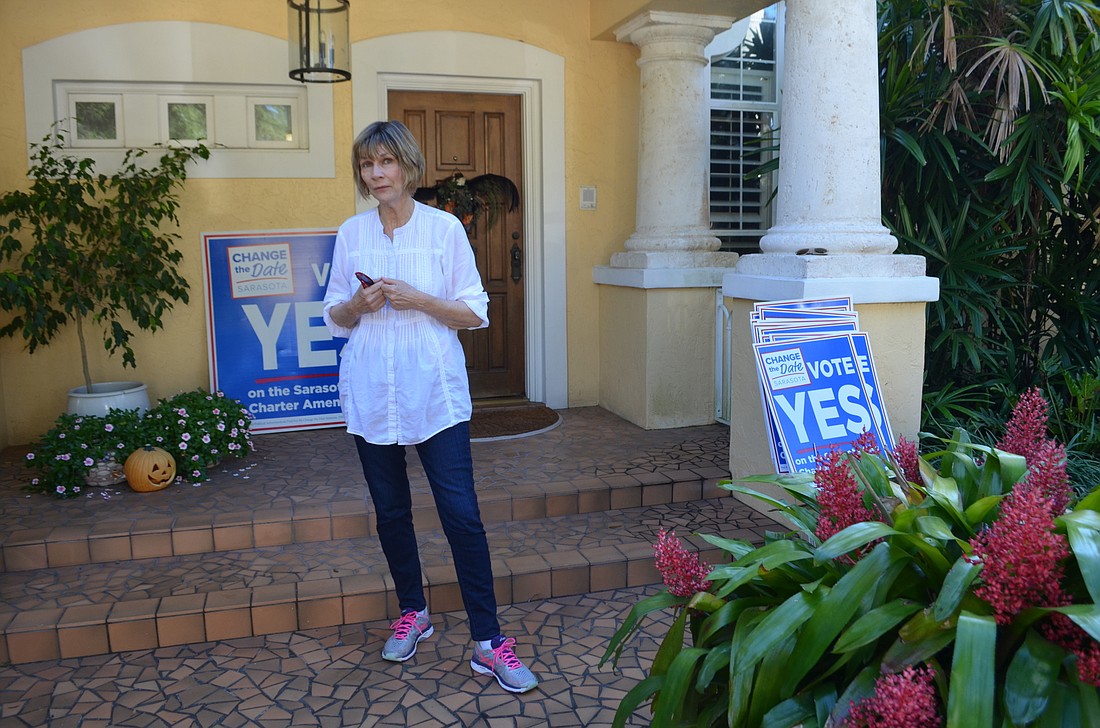- April 23, 2024
-
-
Loading

Loading

To secure a spot on the City Commission in November, the candidates for three open seats will almost certainly have to earn a record number of votes.
A new election schedule for city races led to significant increases in voter participation in the Aug. 18 primary. In 2018, a voter-approved charter referendum moved commission elections from spring of odd-numbered years to summer and fall of even-numbered years, syncing the city with higher-profile state and national races.
Turnout for the Aug. 18 City Commission primary increased by almost 70% over 2015, the previous districts’ election cycle. Nearly 9,800 voters in Districts 2 and 3 cast their ballots in the primary, close to double the average number of raw votes in those districts in the previous two elections.
Supporters of Change the Date Sarasota, the political committee that led the push to adjust the city election cycle, said the results of the August primary vindicated their campaign two years earlier. Suzanne Atwell, a former city commissioner and co-chairwoman of Change the Date, said the group felt the low voter participation in spring elections reflected poorly on the city, signaling public disinterest and undermining the idea that commissioners represented the will of their constituents.
Although Atwell said she hoped to see even higher voter turnout in the future, she thought the increase this year was an important step for the city to take.
“We believed — and I continue to believe — voter engagement is a measure of a healthy society,” Atwell said.
Two candidates who now have experience campaigning under both election cycles remain uncertain about how the new schedule will affect City Commission races long-term. Ahead of the referendum, critics of the Change the Date proposal expressed concern that higher-profile state and national races would take attention away from city elections, making it harder for voters to stay informed.
Former City Commissioner Terry Turner, who received the most votes in the District 2 race Aug. 18, said he had the same concerns when he began his campaign. He said that issue didn’t manifest itself in the primary, however, because there were no state or national races on the ballot this year. He’s not sure if that will hold true in November.
City Commissioner Liz Alpert, Turner’s opponent for the District 2 general election in November, had the same concerns. She thought those fears were justified, to an extent: She believed the city race got less media coverage than it did during spring election cycles. She also said it was more difficult to find volunteers with campaigns for other local races, such as the school board and County Commission, also mobilized.
One major confounding variable makes it tough to single out the effects of the new election dates based on this cycle: COVID-19. Putting that aside, however, Turner said this campaign didn’t feel significantly different than the one he ran more than a decade earlier. He highlighted a few key differences: Campaigning for the fall election was longer and more costly.
“I raised as much money for this primary as I raised for both elections when I ran in the spring,” Turner said. “It’s just a more intensive campaign effort.”
Both Turner and Alpert anticipated a major increase in voter participation for the general election. Supervisor of Elections Ron Turner has previously said he believes turnout could hit 80% in November. Neither candidate was certain how a spike in votes cast, many of which would necessarily come from residents who would not participate in an off-cycle election, might affect the dynamics of the race.
“Because it’s such a consequential election, I think there’s going to be a lot of voters coming out,” Alpert said. “How many that’s going to be and how to reach those people — it’s going to cost more money and take more strategizing.”